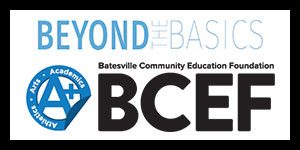 Batesville, IN—The fall 2019 Batesville Community Education Foundation classroom grants awarded to the Batesville Community School Corporation (BCSC) all share a common theme—the funded projects aim to give students a chance to grow their knowledge. And in one case, the growth is meant literally—using seeds.
Batesville, IN—The fall 2019 Batesville Community Education Foundation classroom grants awarded to the Batesville Community School Corporation (BCSC) all share a common theme—the funded projects aim to give students a chance to grow their knowledge. And in one case, the growth is meant literally—using seeds.
Batesville Primary School teacher Vickie Heil was awarded $2,400 for a new greenhouse at the school. Lessons have been developed that teach students the importance of starting the planting process from seeds that they have harvested in the fall. The students determine the amounts of plants needed for the size of their planting beds and learn all about seed growth while monitoring progress. Planning, organization, responsibility, and teamwork are some of the many important skills that the children develop through this process.
Heil wrote in her application, “Having a greenhouse allows for year-round learning opportunities in the garden, as well as saves us money because we don’t have to purchase as many seeds and plants. Our current greenhouse is falling apart. By investing in a new greenhouse, more than 500 BPS students will be able to continue to take advantage of our popular garden program.”
Working with materials that students might think are from a previous century, the two Batesville Middle School (BMS) seventh-grade language arts teachers, Sheryl McCreary and Lisa Barnett, have been awarded $2,000 to purchase gator boards (high-quality display boards) for their annual Century Fair project. This popular annual research project about time periods will impact approximately 170 students every year and should last about ten years.
BMS Principal Dave Strouse said, “Parents, community members, and other educators have the opportunity to visit the Century Fair first-hand to see students present their decade projects as students dress in costume accustom to their decade. The gator boards would greatly enhance the Century Fair experience for our students.”
BPS music teacher Lori Spears was awarded a grant of $600 to establish a singing library in her classroom. The library will be accessible during stations, for partner work, and for students who finish their work early. These singable books will be used for vocal exploration, for development of higher levels of thinking in music, and for students to explore their singing voices. Wordless books can be used for the littler students with markings for pitch. This is another amazing way to integrate music into the world of the littlest learners.
Spears explains the program this way: “I would like to use books to help students feel comfortable with singing alone. Students can pair up with a book that uses a song we have learned in class. One student can hold the book and turn the pages, while the other one sings, and then they will switch roles. The students benefit from hearing one another sing, and the medium used makes singing alone something that is interesting, not intimidating.”



